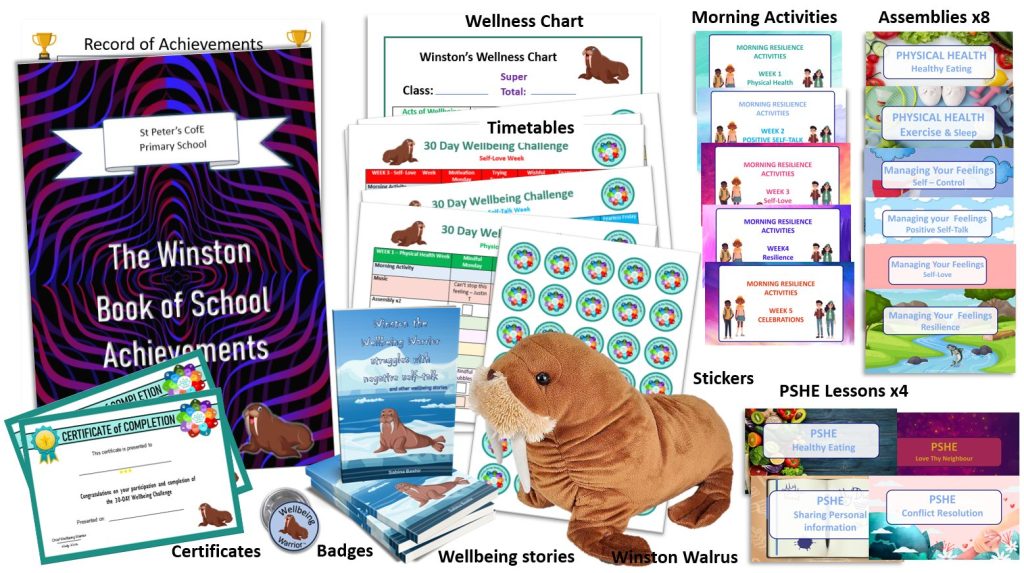Even with decades of experience in schools, Sabina witnessed firsthand how the system couldn’t cater for her youngest child—and is still unable to cope with so many others. But here’s the thing: It’s not because teachers or students aren’t giving it their all. In fact, the effort, interventions and quality of teaching are better now than ever before. So why are so many kids still slipping through the cracks?”
The truth is, society has changed—big time. But there’s a disconnect. We’re not fully recognising just how much has shifted, and because of that, the real issues impacting our kids aren’t being properly addressed.
Today, children are dealing with levels of stress and anxiety like never before, and a lot of that is coming from the shifts in the way adults around them behave. Unfortunately, many schools are as in the dark about what to do and without real guidance are struggling to meet needs too. They’re so focused on academics that they’re missing the bigger picture, and children’s mental health issues are not being dealt with adequately.
Many in the education system still believe that children are struggling because of the learning they missed during COVID. But here’s the thing—that’s yesterday’s news. We’re busy trying to solve a problem that’s no longer the real issue. Over the past decade, research clearly indicates that society has changed, and we need to start paying attention to what’s really going on.
Let’s look at the numbers: adults now have an average of 6 serious relationships in their lifetime. They’re moving houses and changing jobs at least 5 times. That kind of constant change means more instability for kids. And with women making up 41% of the workforce—many in senior management positions—it’s added a whole new level of stress to home life.
So, why does this matter? Because children today aren’t growing up with the same stability and nurturing environments of past generations. And until we recognise that, we’re missing the real root of the problem.
For many children, school is now the only constant in their lives, yet schools are not fully equipped or aware of the responsibility they now have to shoulder. They mistakenly continue to ‘improve’ a teaching system, focusing purely on academics that does not need changing, while mental health referrals for children continue to soar, leaving schools struggling to cope.
As a parent who struggled with her own child’s mental health issues due to my work schedule, I appreciate the difficulties parents are going through. But equally, being a teacher dealing with several children suffering from mental health issues in school at the same time, I fully appreciate the issues on the other side of the fence too. Therefore, I created programs and resources to support both parents and schools with their children.
The Build-a-B.R.A.I.N Program is a whole-school initiative designed to support kids where it really matters—outside the classroom. Run by teaching assistants during break times, lunch times, and even after school if needed, the program tackles a key issue: most conflicts between children happen during these moments, leaving support staff unprepared and kids returning to class upset, disengaged, and unable to focus.
This program is a game-changer. It’s for all children, especially those who are neurodivergent, like kids with ADHD and Autism, who might not thrive in a traditional classroom setting. The Build-a-B.R.A.I.N program offers comprehensive training not just for teaching assistants, but also for teachers and parents—so these strategies can be used both at school and at home. And because we know that supporting children’s mental health starts with the adults around them, we’re just as focused on the wellbeing of those delivering the program.
But that’s not all. We also offer the 7-Day and 30-Day W.E.L.L.B.E.I.N.G Challenges, timed perfectly at the start of the school year and right before test season, giving kids the extra boost they need. Plus, tools like My Happy Healthy Journals and the How to Unlock Happiness Guides help transform children’s mindsets and build their resilience.
These programs aren’t just theory—they’re backed by 30 years of experience working with kids, combined with deep knowledge of psychology, neuroplasticity, and brain science. And the results speak for themselves. With her own child and many others, these strategies have shown dramatic results in just a week.
So, if you’re ready to truly elevate the wellbeing of the children in your school, don’t wait—reach out to us today
Our vision is simple: to improve children’s mental health around the world through our programs and resources.
One of the things that makes the Build-a-B.R.A.I.N. Program so special is how it empowers kids to truly understand their brains. It teaches them how to manage their emotions, giving them practical, everyday tools to regulate their feelings in a healthy, safe way.
What’s even better? The program is designed to be used daily, ensuring quick results. In fact, you’ll start to see shifts in attitude within just a week, transforming children’s habits in record time.
When parents and teachers come together and implement the strategies from the Build-a-B.R.A.I.N. program, they create a supportive, nurturing environment where kids can thrive. This approach addresses their needs holistically—inside and outside of the classroom.
Our ultimate vision goes beyond just helping children. We’re here to support parents and teachers too, especially when they’re facing their own mental health challenges. By building a strong, supportive foundation for everyone involved, we aim to bring stability and resilience to children worldwide, giving them the tools they need to navigate life’s changes with confidence.
By putting the Build-a-B.R.A.I.N. strategies into action, parents and teachers can work hand-in-hand to create a supportive, nurturing environment for children—one that addresses their needs from every angle.
Our ultimate vision? To help children through their toughest moments, while also supporting the parents and teachers who may be facing their own mental health struggles. By building a strong, supportive foundation for everyone involved, the program creates the kind of stability children need to thrive. Our goal is to empower kids to build resilience and confidently face the ever-changing world around them.
But what we love most is building strong connections between home and school, and conducting our own research into how parenting and teaching styles impact children’s development and success.
When parents and teachers truly grasp the challenges kids are facing, they can collaborate in a way that genuinely supports children’s mental health. This partnership creates a deeper understanding and a more meaningful approach to helping kids thrive.
So if you are interested in trialing a program or taking part in our research study. Then feel free to reach out.













